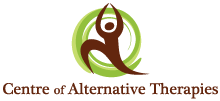Acupressure
In complementary health care strategies one ancient healing modality stands out for its profound impact on physical and emotional well-being: acupressure. Rooted in the rich tapestry of Traditional Chinese Medicine (TCM), acupressure has endured the test of time, transcending centuries to offer a unique and holistic approach to health and healing. Unlike many conventional therapies, acupressure relies on the body’s innate ability to restore balance, stimulate natural healing processes, and promote overall wellness without the use of pharmaceuticals or invasive procedures. Whether you seek relief from pain, stress reduction, or a means to foster harmony within your body and mind, acupressure holds the promise of unlocking the healing potential that resides within us all.
How Does it Work?
Acupressure is a type of massage therapy in which manual pressure is applied to specific points on the body. It is a practice of traditional Chinese medicine (TCM) practice that is like acupuncture, except that it uses fingertip pressure instead of needles.
Our acupressure practitioners use their fingers and or special devices to apply pressure to acupoints on the body’s meridians. Sometimes, acupressure also involves stretching or acupressure massage, as well as other methods.
During an acupressure session, you lie fully clothed on a soft massage table. The practitioner will gently presses on acupressure points on your body. A session typically lasts about one hour. You may need several sessions for the best results.
Acupressure as a Complementary Health Strategy: Clinical Effectiveness and Benefits
Acupressure, a time-honored practice that offers many benefits across various disease states and disorders. Rooted in the ancient principles of Traditional Chinese Medicine (TCM), this non-invasive technique involves applying targeted pressure to specific acupoints on the body, resulting in a range of therapeutic effects. Here are some of the clinically effective benefits of acupressure across specific health conditions:
Good for Pain Management:
Chronic Pain: Acupressure has demonstrated efficacy in managing chronic pain conditions such as osteoarthritis, fibromyalgia, and lower back pain. It can reduce pain perception and improve physical function, often providing long-lasting relief.
Stress and Anxiety Reduction:
Anxiety and Depression: Acupressure promotes relaxation and reduces symptoms of anxiety and depression. It can alleviate emotional distress and improve overall mental well-being.
Nausea and Vomiting:
Chemotherapy-Induced Nausea: Studies have shown that acupressure can effectively reduce chemotherapy-induced nausea and vomiting, providing relief to cancer patients undergoing treatment.
Digestive Disorders:
Irritable Bowel Syndrome (IBS): Acupressure may alleviate symptoms of IBS, such as abdominal pain and discomfort, by regulating digestive function and reducing stress-related triggers.
Headaches and Migraines:
Tension Headaches and Migraines: Acupressure techniques can alleviate the intensity and frequency of tension headaches and migraines, offering a drug-free alternative for pain relief.
Insomnia:
Sleep Disorders: Acupressure can improve sleep quality and help individuals with insomnia by reducing stress and promoting relaxation.
Menstrual Disorders:
Dysmenorrhea: Acupressure has been found to reduce the severity of menstrual pain and discomfort associated with conditions like dysmenorrhea.
Hypertension:
High Blood Pressure: Acupressure may contribute to lowering blood pressure levels when combined with other lifestyle modifications and medical treatments.
Respiratory Conditions:
Asthma and Allergies: Acupressure can help manage symptoms of asthma and allergies by promoting better lung function and reducing bronchial spasms.
Pregnancy and Labor:
Morning Sickness and Labor Pain: Acupressure is sometimes used to relieve morning sickness during pregnancy and manage pain during labor, providing comfort to expectant mothers.
Immune System Enhancement:
General Immune Support: Regular acupressure sessions may help strengthen the immune system, potentially reducing the frequency and severity of infections.
Overall Well-Being:
Stress Reduction and Balance: Beyond specific ailments, acupressure contributes to overall well-being by harmonizing the body’s energy flow, reducing stress, and enhancing the body’s ability to self-heal.
While acupressure offers promising benefits across these various health conditions, it is important to note that it is typically used as a complementary therapy alongside conventional medical treatments. As with any holistic approach to health, consultation with a qualified practitioner is advised to tailor acupressure techniques to individual needs and ensure safe and effective integration into one’s health strategy.
